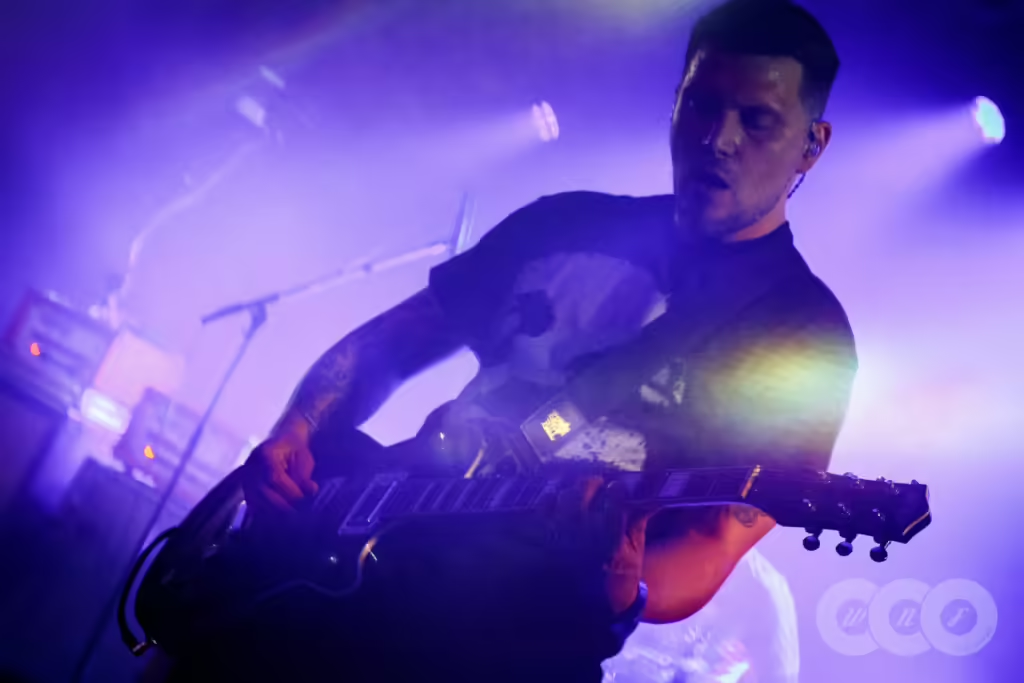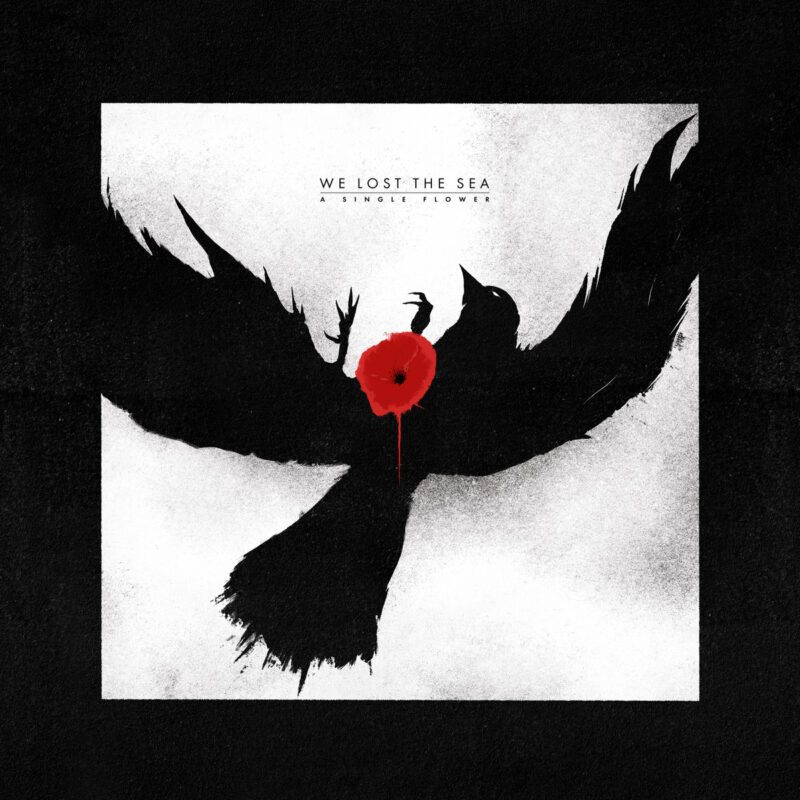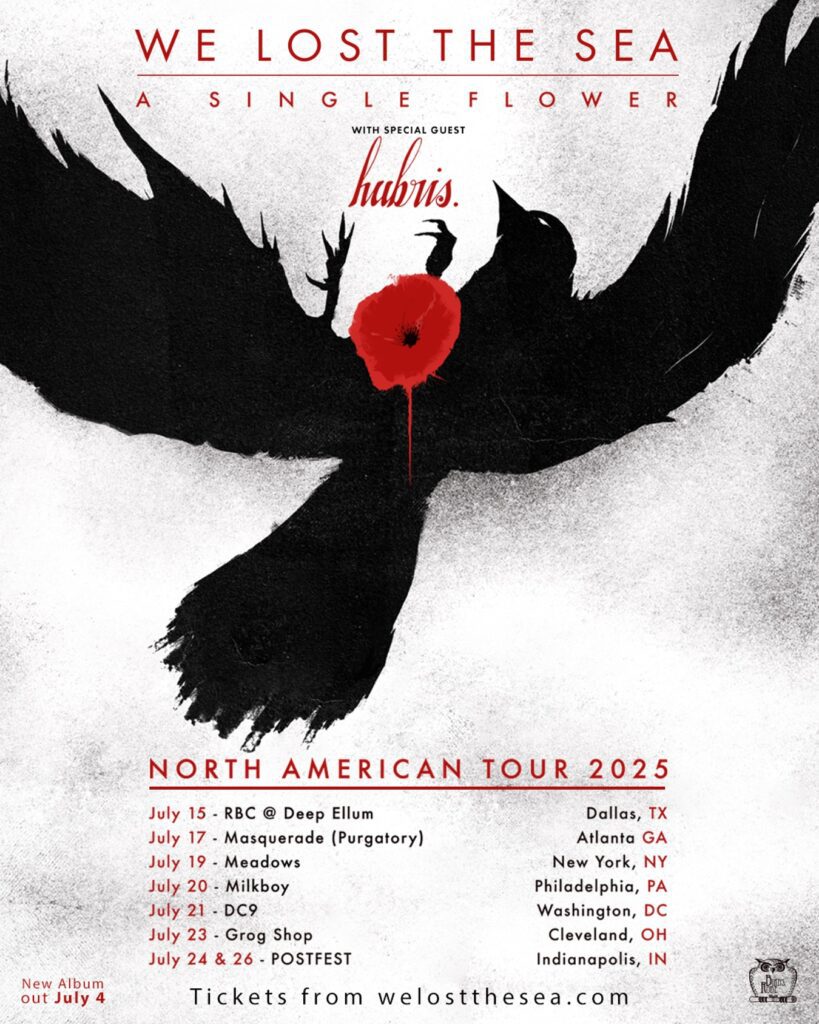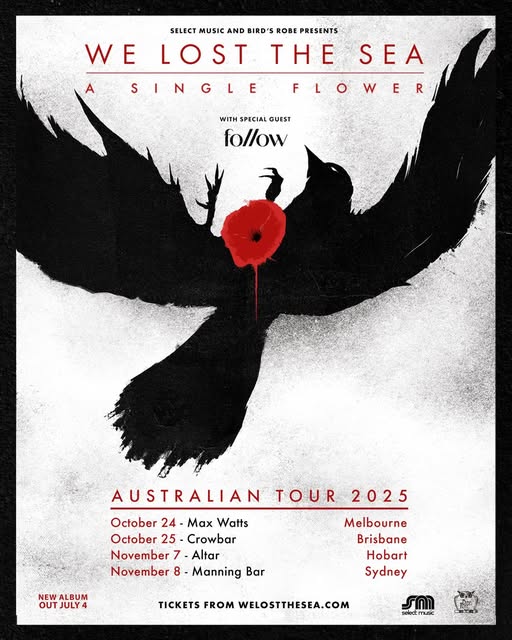So, we finally have a new We Lost The Sea album brought forth into the wild. It’s been a long wait, and a lot has happened in the world since the heady days of October 2019. Global pandemics, wars, riots, political upheavals and much, much more. And Triumph & Disaster seemed to be a very apt soundtrack for it all. I don’t know about you, but The Last Sun & Mother’s Hymn were on high rotation in our house during those black pandemic days, seemingly reflecting the helplessness, distrust and bleak acceptance of the world around us.
And now we have A Single Flower to carry us on for the next period of time. I can tell you immediately that I’m exceedingly thankful for that. What good is global unrest and uncertainty without a smashing soundtrack?
We Lost The Sea have never shied away from heavy themes in their music – in fact, they revel in it. Crimea on the brutality of war, The Quietest Place On Earth on soul crushing emotions, Departure Songs embracing glorious failure and Triumph & Disaster a final day on Earth between a mother and son. Safe to say, heavy themes abound. A Single Flower slots into this seamlessly right from the off, with its full title: ‘A Single Flower or The Black Bird Glowed Bright White as it Fell and Became a Trail of Light’.
Sunshine and rainbows this is most firmly not. But therein lies the power: you cannot have light without darkness. And by drawing from the darkness, the light when it visits becomes even more powerful… And We Lost The Sea are masters at manipulating the darkness, encapsulating it as a vehicle to drag you into the light.
The album opens with ‘If They Had Hearts’ – a single, jagged, forlorn guitar riff echoing sadly. It’s channeling middle eastern or latin sensibilities, in no hurry to expand or contract while the band slowly come in around it. Muted drums slowly expand in the background, increasing in volume and venom as piano, bass and the heavenly triple guitar attack swell and ebb. At around 3 and a bit minutes we get into the track ‘proper’, percussive elements continuing the inexorable pace as the band move as a single unit towards the peak. And then at 5 and a half minutes we get the pay off, the track exploding into menace, sadness and power – yet without changing the underlying riff or tempo at all.
It’s a masterclass in building, layering and minimalism as a sonic assault. Elements of Swans no-wave certainly seem apt here. And then suddenly the track has collapsed upon itself, leaving us with gentle, swirling guitars, delicate piano and a sense of space with a touch of longing. I can only imagine this live.
Then we head straight into ‘A Dance With Death’, potentially the most recognisable We Lost The Sea song on the album – in every wonderful way possible. Earthquake bass kicks us off, melodic, chugging and setting a scene. Guitar lines that are almost ‘proggy’ weave in and out, piano lines soar and the drums. Oh my heart, the drums. First time I heard this track I excitedly messaged a friend on how good the drums on this track are – and after 50+ listens I’m now even more certain. The snare hits at about 2.30 in absolutely hit my soul, and the guitar lines building pressure, intensity and anger just make me want to scream into the void.
And then just like that it’s all panned, mixed and echoed out into a single guitar riff that to me is absolutely a call back to Departure Songs (might be miles off, but I swear it is). Then it’s brushes on the kit, delicate piano and melancholy as far as the eye can see… Until a buzzsaw guitar starts building. Snappy high hat work. A partner guitar to increase the tension and sonics. Bass to massage your intestines, and the song keeps going, until the inevitable explosion. And it is glorious. When everything comes in you are left with no doubt that this is a band operating at the peak of their powers. And then, then, then – a filthy, majestic and just flat out disgustingly good riff to finish it all off. Absolute class. I cannot get enough of this song, and a dance with death it most certainly is. If you survive or not, uncertain.
Next up is ‘Everything Here Is Black And Blinding’. If I had to sum up this track with just one word it would be: oppressive. This is a dank basement, mould on the walls and a single dust covered window allowing just a single shaft of light to penetrate the space. It’s another angular, off kilter guitar riff to start things, with a drum beat that to my ears brings me memories of early 2000’s electronic dance music (because old). There’s layered guitars that are more static and emotional than notes, while the main guitar line weaves through it all. There’s noise here. Counter beats. It’s dense. It’s a wailing, angry beast lurching through the darkness.
Then the inevitable peak as everything comes to a head, those static/noise guitar lines expanding and growing, bass nailing you to the floor, filthy, dust covered keyboard riffs (Fender Rhodes?) taking over everything as the whole track collapses in on itself and dies. I wasn’t sure about this track when I first heard it, but it’s superb. It’s different, exciting and oh so engaging. At ‘only’ 8 minutes there is a lot to unpack here, and even more to revisit again and again. And I’m just starting to scratch the surface of it.
Moving into the second ‘half’ of the album we have ‘Bloom (Murmurations Of First Light)’. A wistful, melancholic solo guitar line kicks it off before we almost immediately head into a walloping wall of sound as the band pins our ears back. A riff of longing, reverb, echoes and distorted melody push us through the initial section, until that bass is all that remains with a dirty riff. And then we’re back to the first guitar line. I didn’t know what a ‘murmuration’ was (for those like me, it’s a term to describe those wonderful soaring, swirling patterns that flocks of birds can make), but the middle part of this track is a murmuration encoded as a song to me. It’s beautiful. Swelling, orchestral and melodic. I can close my eyes and see the flock of birds above my head, swirling in time to the bass and piano, kicking left and right, up and down in time to the drums.
And while these birds are putting on a show the guitars are chiming, weaving in and out for a dance all their own as well. If the previous track was oppressive, this is light. It’s fragile, delicate light that can corrode and die at any moment, but light nevertheless. And so we build, the band allowing us more shafts of light and swooping lines, chugging guitar steaming ahead until a guitar solo like a laser from space pierces the sonic assault. It’s been a while since a solo like that has been on a WLTS album and it’s another excellent example of the tonal changes and musical switches on this album. And then we’re done. The birds have finished their dance and the guitar from the beginning is echoing around our heads again, bass and swelling cymbals reminding us of the journey we just had.
And then – ‘The Gloaming’.
I wasn’t ready for this track. To come where it does on the album, and after all the changes, variety and complexity before it it floored me. I had a good cry hearing this. It is the very definition of fragile beauty. Soaring strings, piano and more melancholy then I was ready for on first listen. It. Is. Gorgeous. It’s also the shortest track at around 3 minutes, but what a wonderful 3 minutes. It’s potentially the most ‘simple’ track on the album (and it is not simple) but holy shit it’s just great. It’s beyond emotive and hit me right in the feels. I can’t really say much more about this than it’s just beautiful and I thank them for sharing this with us. If only I could hear this live.
“Does the earth hold our guilt or our own hearts?”
And finally we come to… ‘Blood Will Have Blood’. Mark Owen himself described it to me as ‘a behemoth’ and he is most certainly not wrong, but I’d also throw in a few extra terms like ‘gargantuan’, ‘odyssey’ and ‘immense’. To start with, it’s 27 minutes long. We’ve had what a lot of bands would consider an album prior to this track… and yet here we are. Epic is an understatement. Wistful guitars start chiming to kick it off, warm bass hugging you and consoling you until mallet drums and lonely piano remind you where you are. You’re in their world now, and best buckle up. This exudes space and slow build up, layers coming in slowly as the emotive pressure ratchets up a single degree at a time. Minor riffs swirling and growing, growling in the darkness as a single fist rages against the dark.
The drums propel us forward, waves of guitar building and shimmering. And then the snare rushes begin and the band… Hit us with a glorious major key riff. Exploding out of the darkness it’s sunshine, lightness and hope. It’s rocking, majestic and unexpectedly happy – until you look at the runtime and realise we’re less than halfway through. Challenger Part II this is not. And almost like trying to hold onto a dream when you wake the sunshine dissipates in a wave of thick riffs and we descend back into the inky blackness.
But perhaps all is not quite lost yet. Yes, the guitar lines are mournful. Swelling, cajoling and brittle but as the distortion hums around the pure notes there is still a background warmth. But that soon disappears as we’re left with cold indifference. A military snare beat starts pushing us forwards as the guitars growl quietly, the piano offering slight respite. The bass pulses like a heartbeat in your throat, noise and atmospherics only adding to the overall feel. It’s building, but to an unknown place. If a slow building peak could be constrained violence, this is it. It’s unforgiving, pummeling and full of rage. And then – jagged guitars ramp up the violence. Anger at the world, anger at the heart, anger at the cold indifference of the human condition. It’s vitriol, helplessness and silent rage as music. It’s also the culmination of the journey of this album.
And so it continues building, riffs exploding left and right, buzzsaw guitars fighting each other for supremacy and glorious noise everywhere. It’s almost funeral with it’s tempo, yet somehow feels far faster. And just when you think the violence, darkness and futility will win, we’re done. The darkness has been pushed back. Perhaps just for a moment, perhaps for good. But embrace the beauty of the end. A return to delicate moments, beauty and positivity. And with that, it’s over. And what a ride.
When I reviewed Departure Songs I said something like ‘if you want to show someone the power of music, play them this album’. A Single Flower is if you want to show someone the emotive, physical power that music can have. It’s beautiful, bleak, angry, dark, happy, wistful and so much more. It’s dense, layered and not what I was expecting, and I love it all the more for it. It’s a journey in all the best ways possible. And to continue with the single flower analogy, peeling back each petal of this album is an immensely rewarding journey.
Kudos. A massive release.

A Single Flower releases July 4, 2025.
We Lost The Sea are touring North America with Hubris. in July, and their home country of Australia with Follow in October/November.
We Lost The Sea links:
https://www.welostthesea.com/
https://welostthesea.bandcamp.com/
https://www.instagram.com/welostthesea
https://www.facebook.com/welostthesea
https://x.com/welostthesea

Guest post by Nick Dodds
See also: We Lost The Sea – Triumph & Disaster review by Gilbert Potts

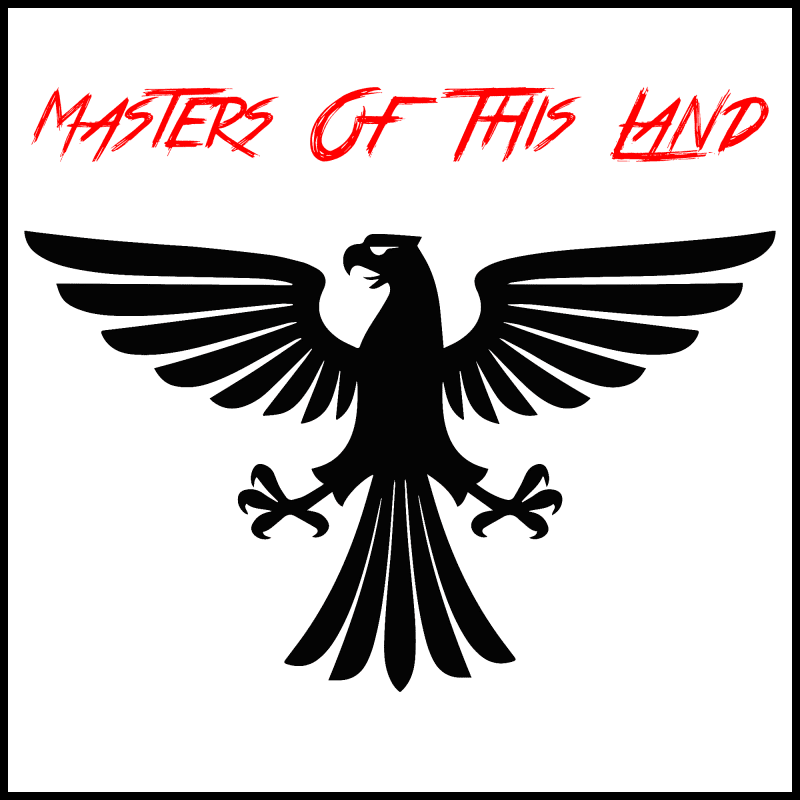
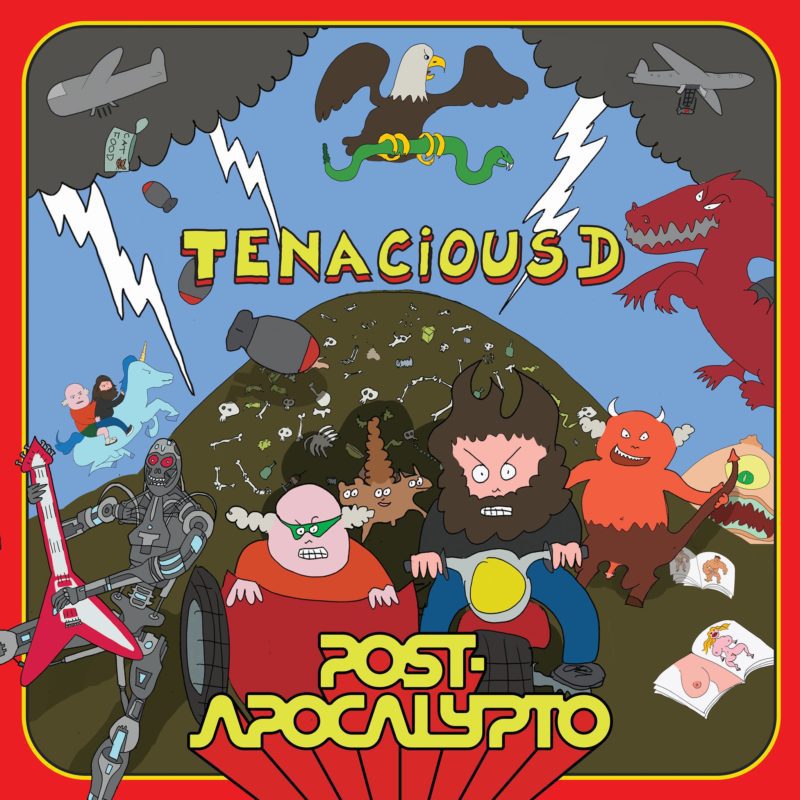
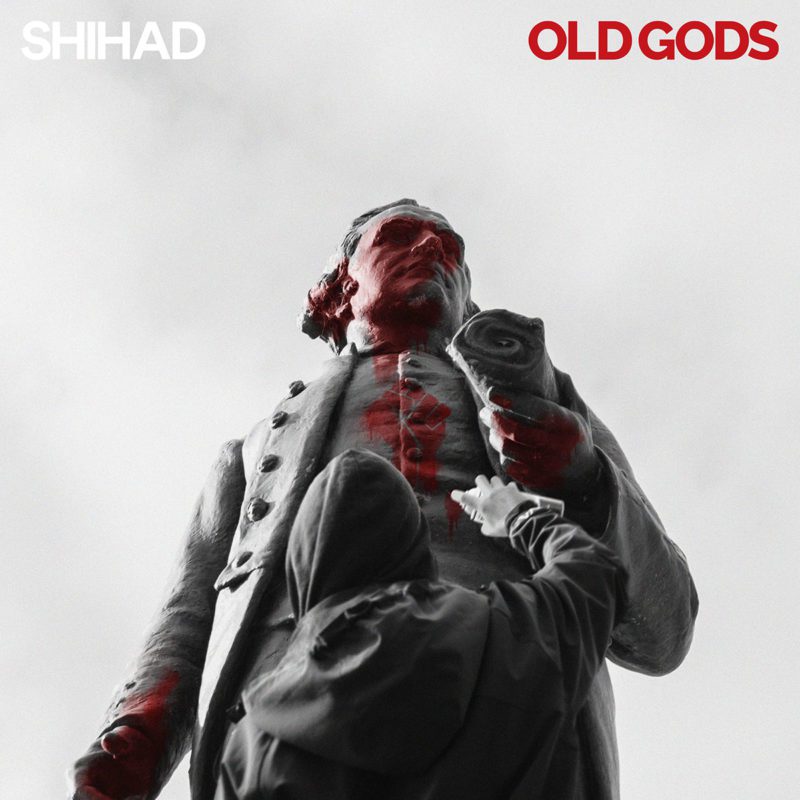
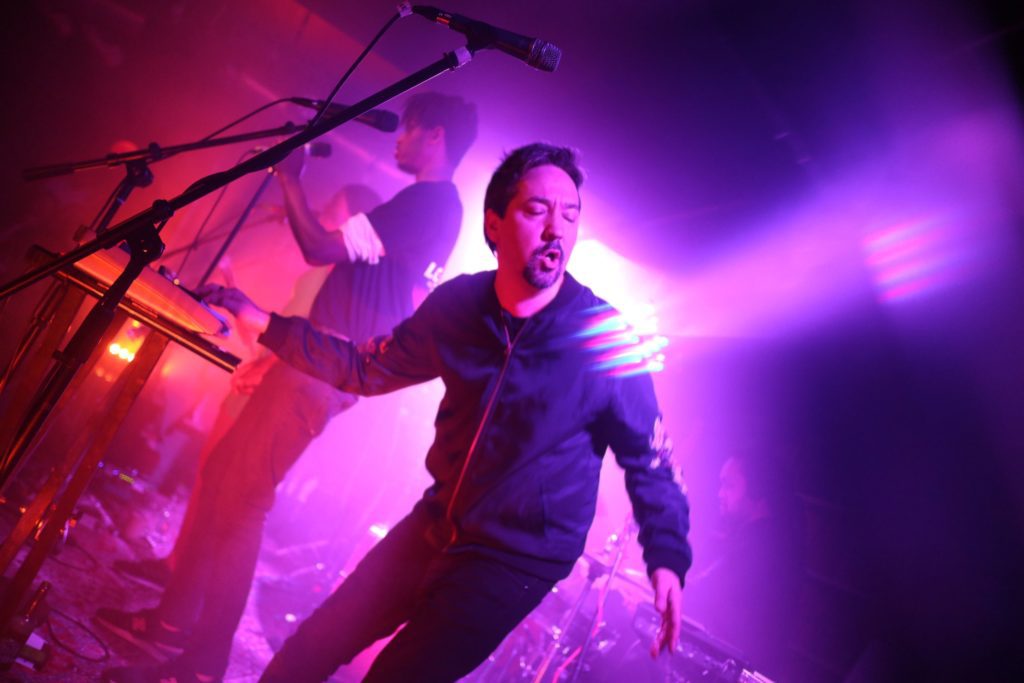
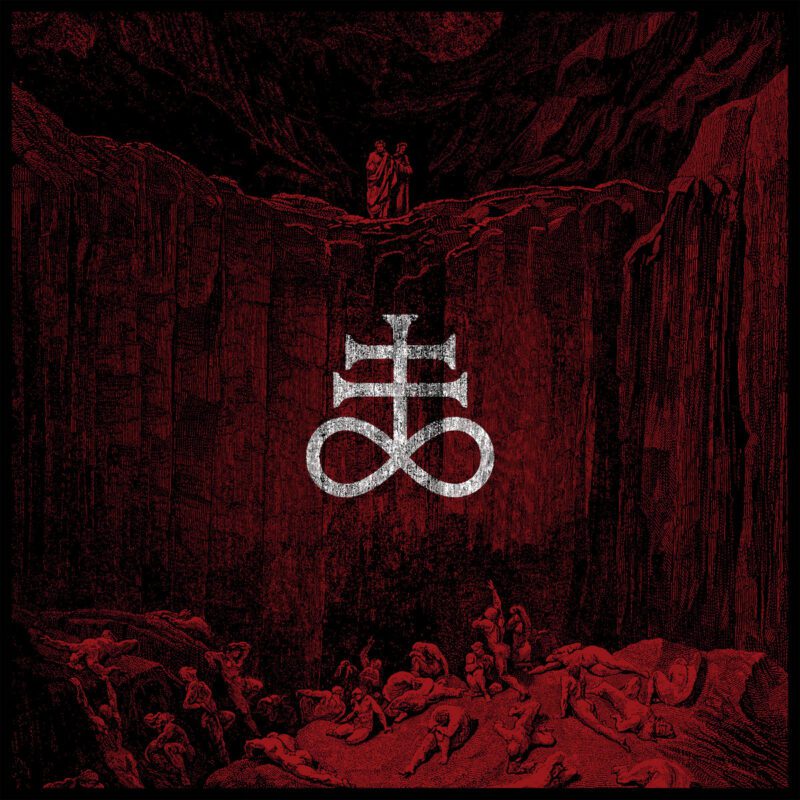
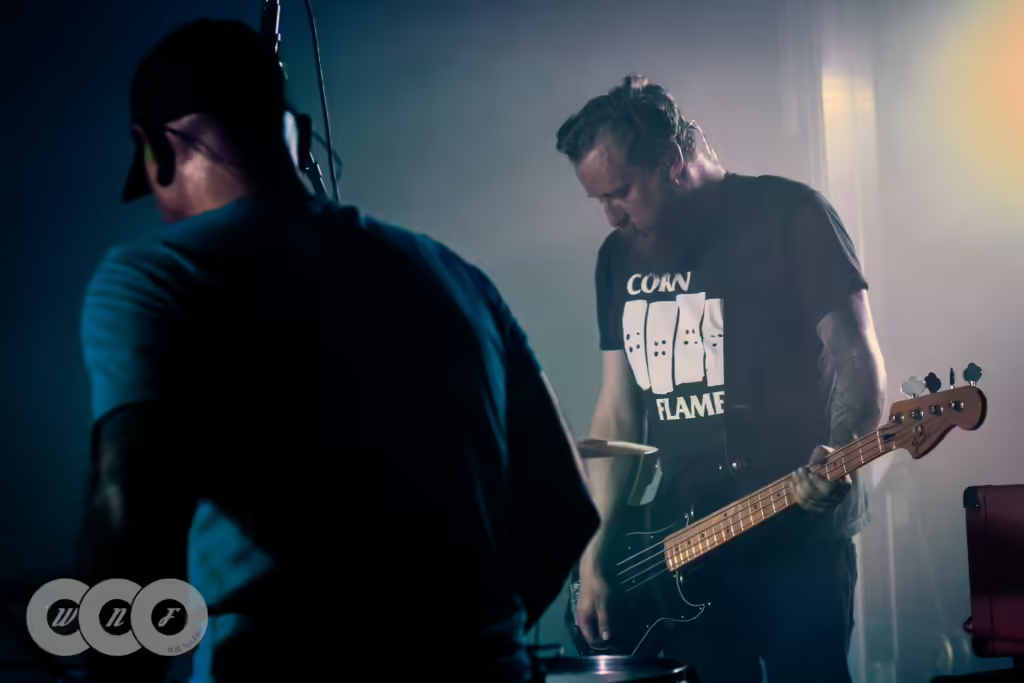
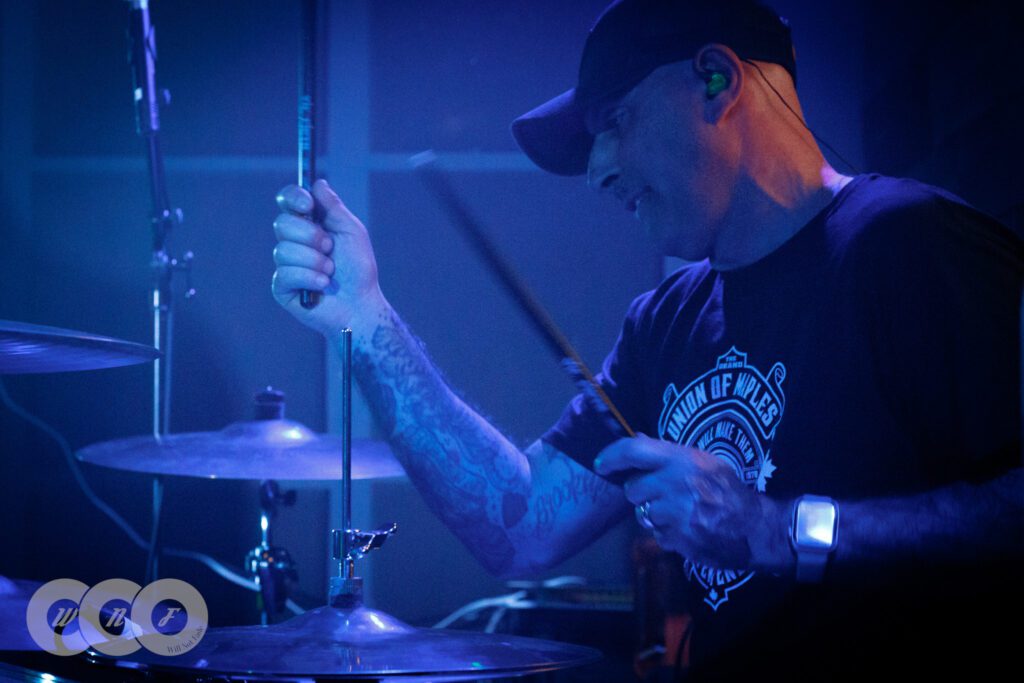
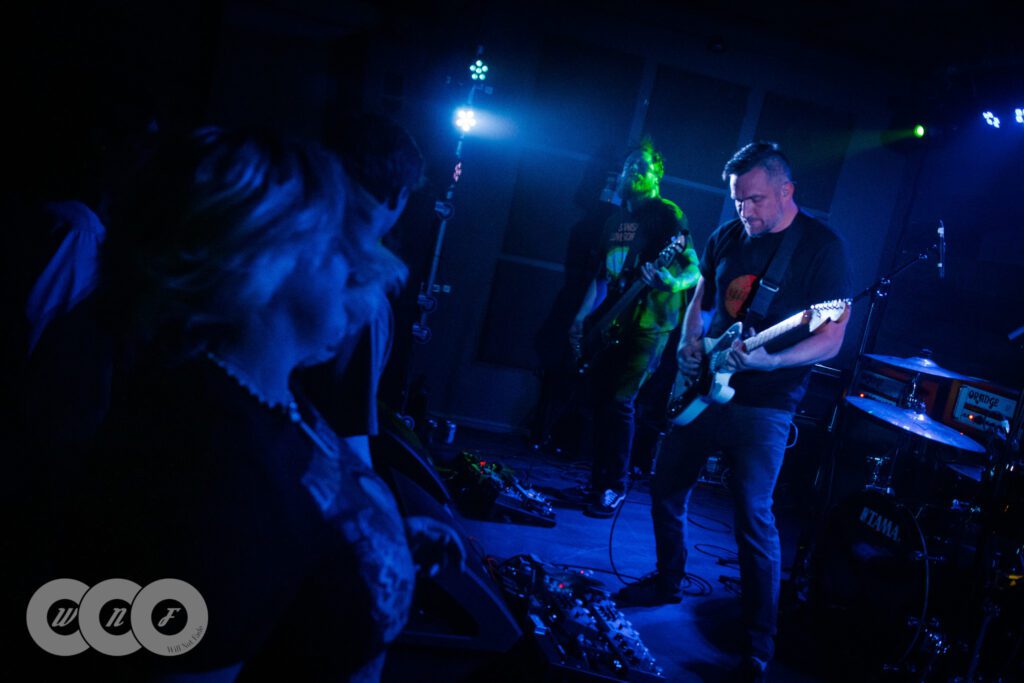

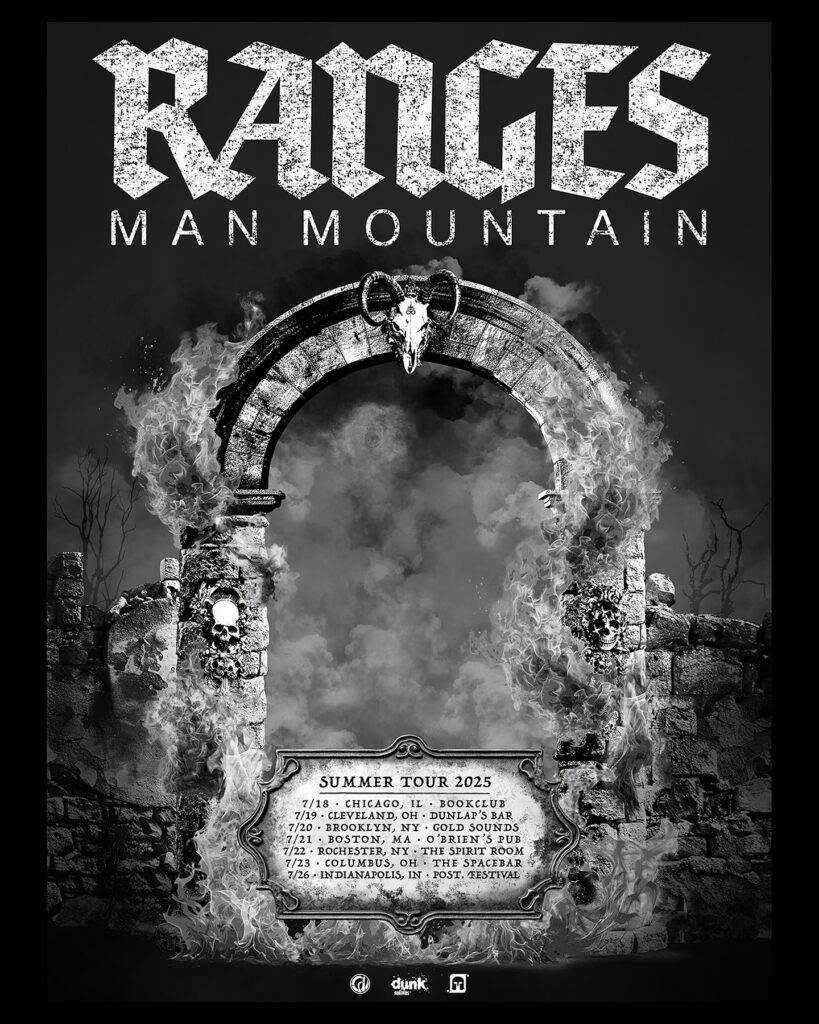 Ranges are about to embark on an American tour with their friends in
Ranges are about to embark on an American tour with their friends in 